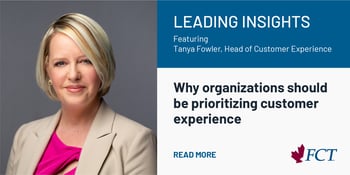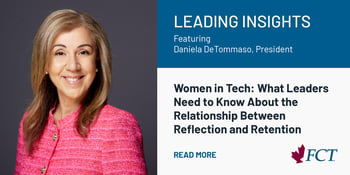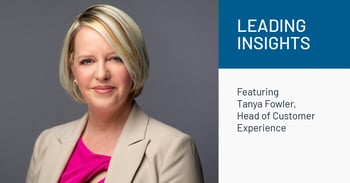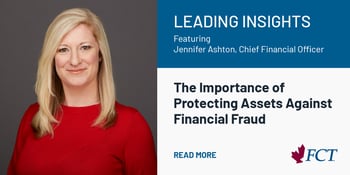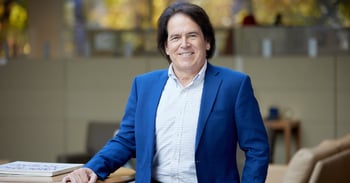
The real estate market is always changing, and the most successful businesses change with it. How is yours meeting customer expectations of faster, easier transactions?
Five professionals across the country and the real estate lifecycle share how they changed the way they do business to meet the needs of customers today:
|
|
Chris Cook, Sales Representative at The Halyard Group, Ontario |
“I don’t like to advertise on just sold, sold over asking, all that stuff, because it’s not a value to the consumer. I base my advertising on answering questions my clients ask me on a regular basis. If I’ve got one person asking me something, there could be a whole crowd who have that exact same question. That’s the best way to fight against the negative perception: show you’re genuine, that you actually care. Give stuff away for free.
Before the pandemic, I disliked going to see more than three houses a session with clients—they would blur together, and that doesn’t help the client. When COVID hit, one of the things I was able to change was viewing. Now I go and see four or five homes a day, on my own time, over a week. I experience what it’s like, and if it matches up with my clients. Then I’d message them, saying “I really think you’ll be interested in these two [houses]. What’s your availability like?” I present it as an added service—we spend less time, see fewer homes and make more educated offers.”
|
|
Clinton Wilkins, Mortgage Broker at Centum Home Lenders Ltd., Nova Scotia |
“I think clients are more educated now than they were before, but I think people are a little bit on edge. Emotions are high with the market so hot—clients, realtors, lawyers. Clients know more about what the process looks like and are definitely doing more research than they were before. We might not be educating them just on the mortgage—we’re educating about the whole real estate life cycle.
Here in the Maritimes, it’s about the relationship. It’s important for our brokerage—we’re in the relationship business, and I think in Ontario, the mortgage business is a bit more transactional. But everyone gets the same treatment and communication to build up that relationship. I don’t think having two-tiered system for [local and out-of-province] clients really works—it’s about asking how we can perfect the experience for the customer, no matter where they’re coming from.”
|
|
John DeRose, Director of Mobile Mortgage Sales at Vancity, British Columbia |
“People want to talk about mortgages when they want to talk about them, not between nine and five. I think COVID has accelerated that—people realize they don’t have to go to a branch anymore. We’ve reached outside of our branch footprint into a new model and we’re seeing gains from it already. Looking at most financial institutions, their mobile teams are bringing in the bulk of their residential retail business. Our members look for convenience and advice, that’s where we’ve kept pace and that’s going to continue.
When you’re getting a $1 million mortgage, you’ve got to make the right decision, and the lowest rate isn’t always the cheapest mortgage. So when you need to talk to someone at 8:00 p.m., that’s where we are. Asking the right questions is key and the client needs to be able to ask them. If they’re forced to go into a branch at 10:00 a.m. on a Thursday, they’re looking at their watch, just wanting to sign the mortgage. Members should have choice of channel. What we’ve learned is if we serve clients at their time of convenience, they’re willing to sit, listen to somebody, ask questions, and get better service. When service goes up, they’re going to stay with you.”
|
|
James Song Q.C., Partner at Prowse Chowne LLP, Alberta |
“The transaction timeline is so much shorter; we have days instead of weeks. People are exhausted thanks to COVID—even really resilient people or people with a lot of resources are struggling. On top of that, we’re most vulnerable, in a lot of ways, when we’re moving to a new home. That’s when people need the most help, and I’ve found we can be part of that. People can be more emotionally charged, they might not react to something as well as they might otherwise, so the way you convey information is key.
To stand out, you need to deliver at a high level, be empathetic, be efficient and grow that relationship. There’s a way to humanely deliver services. You need to think of it like having someone in your home—making sure they’re comfortable, watching for visual cues of discomfort or where there’s a disconnect. You also need to stay cognisant of the fact that not everyone’s state of mind is where yours is. You’re doing 50 transactions a day, but your client is doing one that’s deeply significant to them. You have to be understanding of that, and I find empathy has become more important as professionals.”
|
|
Mtre Francine Lewis, Notary Public at Lewis Notaire, Quebec |
“One of the things to come out of COVID is that clients are more demanding, which is understandable. There’s been such an emotional toll from the pandemic—people are feeling a lack of control, and they’re frustrated. Every zone in this field is being tested, from the land surveyor to the banker. Notaries come later into the transaction, so by the time a client gets to us, their patience is worn thin. Any surprise or even part of my due diligence can add to that negative experience.
Having personal contact with the parties is crucial to helping with that. When clients have that direct line of communication with me, that transparency, trust can start to instill itself. It can help give them back that sense of control and trust in the process. That mechanism takes time, because you can’t delegate it. I get my best results when it’s me reaching out directly—for clients, once that initial contact is done, they feel they can breathe. They feel that yes, they can trust this new player in their transaction.”
How have your customers’ expectations changed? How have you adjusted your process to keep up? Share your experiences in the comments!
The views and opinions expressed in this article are those of the interviewees and do not necessarily reflect the views and opinions of FCT.
®Registered Trademark of First American Financial Corporation.









